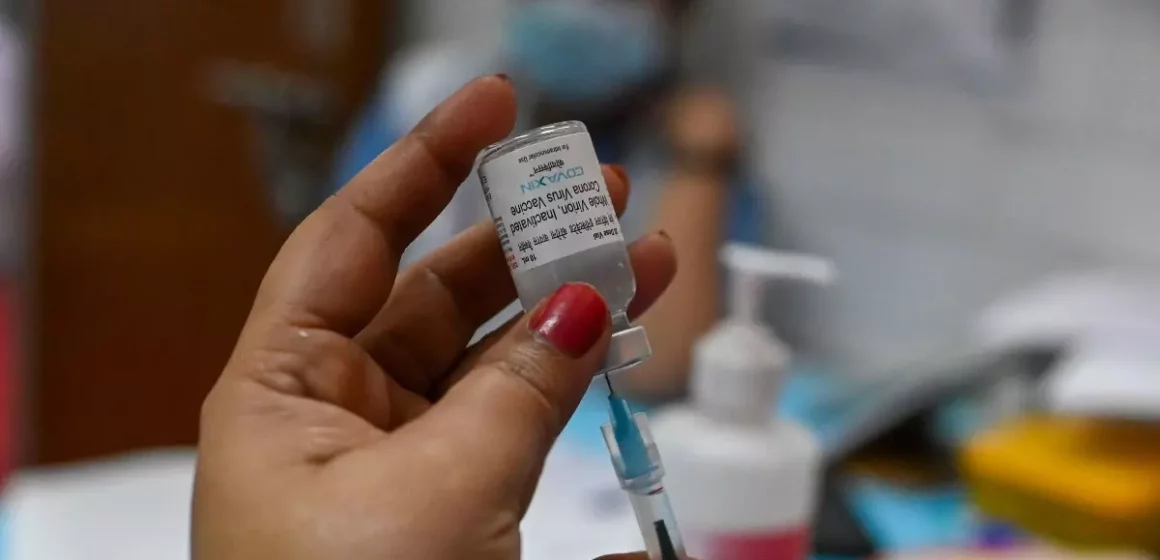The recent publication of a study by Banaras Hindu University (BHU) examining the long-term side effects of Covaxin has ignited a heated debate in academic and public health circles. Titled “Long-term safety analysis of the BBV152 coronavirus vaccine in adolescents and adults: Findings from a 1-year prospective study in North India,” the paper has raised alarm bells about the potential impacts on public trust in vaccine research and the academic freedom of researchers.
Understanding the BHU Study: Key Findings on Covaxin’s Long-Term Effects
Conducted over a year, the BHU study surveyed telephonic responses from 635 adolescents and 291 adults who had received Covaxin. The research aimed to assess the vaccine’s long-term safety profile, especially in a country where Covid-19 vaccinations have been a pivotal part of the public health strategy. The study revealed a variety of mild to moderate side effects, including fatigue and headaches, among participants. Importantly, no severe adverse effects were reported, aligning with broader safety data.
The findings of the BHU study contribute to an ongoing discourse about vaccine safety, providing critical insights that could inform both public health policy and future vaccine research. However, the study’s results also expose the complexities of discussing vaccine side effects, particularly in a polarized environment where vaccine skepticism can cloud public perception.
Academic Integrity and Editorial Standards: The Fallout of the BHU Vaccine Study
The controversy surrounding the BHU study has led to a broader discussion about the integrity of academic publishing and the editorial standards of scientific journals. Critics have raised concerns about whether the paper underwent a sufficiently rigorous peer-review process, questioning the journal’s role in ensuring the reliability and validity of research findings.
This scrutiny highlights the need for stringent editorial policies to maintain the credibility of academic research, especially when the subjects at hand can provoke public and political backlash. The incident also serves as a reminder of the potential risks that researchers face when publishing findings that may contradict prevailing narratives or governmental positions on public health issues.
In a landscape where public trust in science can be fragile, maintaining high editorial standards is essential. Academic journals must prioritize transparency and integrity to foster confidence in published research and safeguard against potential biases that could undermine scientific inquiry.
The Dangers of Defamation: Threats to Independent Research and Public Health
One of the most concerning outcomes of the BHU study controversy is the potential rise of defamation cases against researchers. If academics begin to fear legal repercussions for their work, it could have a chilling effect on independent research, particularly in sensitive areas like vaccine safety.
The implications are profound: researchers may become hesitant to publish findings that could be perceived as controversial or critical of government-sanctioned vaccines. This reluctance can stifle innovation and hinder the vital discourse needed to improve public health measures. In essence, the potential for defamation actions can turn independent research into a high-risk endeavor, discouraging scholars from pursuing critical investigations that benefit society.
Moreover, this environment of fear can further erode public trust in science. When researchers feel unable to communicate findings freely, the public may question the motives behind vaccine recommendations and safety assurances, ultimately undermining the collective effort to combat misinformation.
The Role of Public Trust in Vaccine Research
Public trust is a cornerstone of effective vaccination programs. As vaccines play a crucial role in managing infectious diseases, fostering confidence in vaccine safety and efficacy is paramount. The controversy surrounding the BHU study serves as a poignant reminder that transparency and open communication are essential for building and maintaining public trust.
In an age where misinformation can spread rapidly through social media, providing the public with clear and factual information about vaccine research is more important than ever. Ensuring that researchers can conduct and share their findings without fear of retribution is critical for promoting informed public discourse.
Protecting Academic Freedom for the Greater Good
The BHU study on Covaxin’s side effects highlights pressing issues at the intersection of public health, academic freedom, and research integrity. As India and the global community continue to navigate the complexities of vaccine rollouts and public health strategies, it is vital to protect the rights of researchers and uphold the standards of academic inquiry.
Defamation cases against academics can have dire consequences not just for individual researchers but for public health as a whole. To ensure that consumers receive accurate and comprehensive information, it is imperative to create an environment that encourages independent research and supports scientists in their quest for knowledge.
Ultimately, safeguarding the future of vaccine research and public health hinges on maintaining a robust framework that values academic freedom and fosters public trust. The BHU study serves as a crucial reminder that open, honest dialogue about vaccine safety is essential for protecting the health and well-being of society.


Leave a Reply